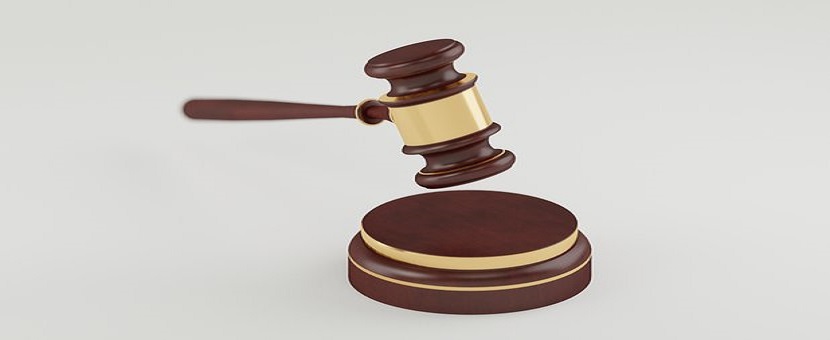Raji v. UNILORIN [2018] 15 NWLR (Pt. 1642) 220 at 236, paras. G-H, per Rhodes-Vivour, JSC:
“Deposing to an affidavit to explain irredeemable flaws in the signing of the Notice of Appeal is a worthless exercise since processes must be seen to have been properly signed, just by looking at it and not by examining affidavit evidence.”
Notes
What happened in the case was that the Appellant filed an appeal against the Judgment of the Court of Appeal in the substantive action by which the Appellant challenged the termination of his employment by the University of Ilorin, the 1st Respondent. At the hearing of the appeal, the Respondents filed a preliminary objection challenging the competence of the Notice of Appeal, same having not been signed by a legal practitioner known to law. The Appellant sought to rely on an Affidavit filed by one of the counsel in the chambers of the Appellant’s counsel’s law firm clarifying the issue of the identity of the person who signed the Notice of Appeal.
The Supreme Court was unmoved. The Court unanimously upheld the Respondent’s objection on the ground that the Notice of Appeal was incompetent since the identity of the person who signed the Notice of Appeal on behalf of one “Dayo Akinlaja Esq.” was unknown. Rhodes-Vivour, JSC made the above quoted statement of the law in support of the lead Judgment. The appeal was consequently struck out.
Peter-Odili, JSC took time to explain the standing policy of the Supreme Court on the issue as follows:
“The position stated above is reiterated for emphasis by the Court in the case of Okafor v. Nweke (2007) All FWLR (Pt. 368) 1016 at 1026-1027; (2007) 10 NWLR (Pt. 1043) 521 to the effect that a process as the Notice of Appeal must be signed by a legal practitioner known to law, thus the identity of the person who signed the Notice of Appeal must be disclosed to assist the Court to confirm that the person who signed the document is a legal practitioner indeed. What is meant by this policy is not to await the clarification by affidavit as to the identity of the owner of the signature on the particular process. What the Appellant is asking of the Court is to authenticate an absurdity, where the Supreme Court has to suspend action and ascertain first of all that the person who signed the starting point of an appeal when it has not been signed by the Appellant himself but a person who claims to be a legal practitioner, that he is indeed a legal practitioner. Such a surveying duty is not for the Court and nothing has happened yet to show that is likely to be commenced now.”
From the facts of the case as narrated, it is quite unclear whether the issue was a case of unsigned Notice of Appeal or a case of a Notice of Appeal signed by an unidentified Counsel. For instance, Sanusi, JSC recounted thus at p.237: “In the instant case the Notice of Appeal which was meant by the Appellant to institute the appeal was not signed at all on top of the name of the purported author of same one “DAYO AKINLAJA Esq” it was therefore unsigned or unauthenticated by anybody.”
However, going by the observations of Peter-Odili, JSC and the Affidavit filed by the Appellant in an attempt to cure the signature defect in the Notice of Appeal, it appears that the issue is one of a Notice of Appeal signed by an unidentified Counsel who sought to identify herself vide the Affidavit as the person who signed the Notice of Appeal. His Lordship observed: “A cursory look at the end of the Notice of Appeal above showcased in full shows that the identity of the person who signed the said Notice is not discernible in for Dayo Akinlaja purportedly signing. That is to say that the identity of the signatory or an indication that the person who signed it is an enrolled legal practitioner in Nigeria, the signature appended for Dayo Akinlaja being a scribble”. Also, according to Rhodes-Vivour JSC, “The Notice of Appeal was signed by “someone” on behalf of Dayo Akinlaja Esq. That someone deposed to an affidavit explaining the blunder. On looking at the Notice of Appeal, it is impossible to say who signed it for Dayo Akinlaja Esq.”
By the above case, the Supreme Court has further shown its strong position and resolve on the issue of proper signing of court processes by legal practitioners in Nigeria. It is left for legal practitioners to be quite meticulous as this is one technicality that is considered sacred and would live with us for time immemorial, the untold hardship on the litigants notwithstanding.
Having said that, it is perhaps worthy of mention that one compelling issue is that the name of the deponent to the Affidavit, one Miss Temitope Odedele, who claimed to have signed the Notice of Appeal never appeared on the Notice of Appeal. It would have been a little persuading if her name appeared along with the said Dayo Akinlaja but there was no indication as to who between the two actually signed. It has been held that counsel must endeavor to indicate who amongst two or more counsel actually signed a process. It has been submitted elsewhere that the NBA stamp should ordinarily help to resolve the issue. That is, where two or more names of counsel appear, there should be a reasonable presumption that the name of the counsel on the NBA stamp affixed to the process is the person who signed the process. More so, an additional Affidavit sworn to by such counsel to further clarify the issue should be entertained in such circumstance. To a large extent, on the strength of the instant case, it is doubtful if the Supreme Court would be persuaded by this argument. Nonetheless, it must be conceded that the scenario painted by us is sufficient to distinguish the facts. Also, going by the date on the Notice of Appeal which is 14th July, 2006, it is clear that NBA stamp was not in use at the time.














